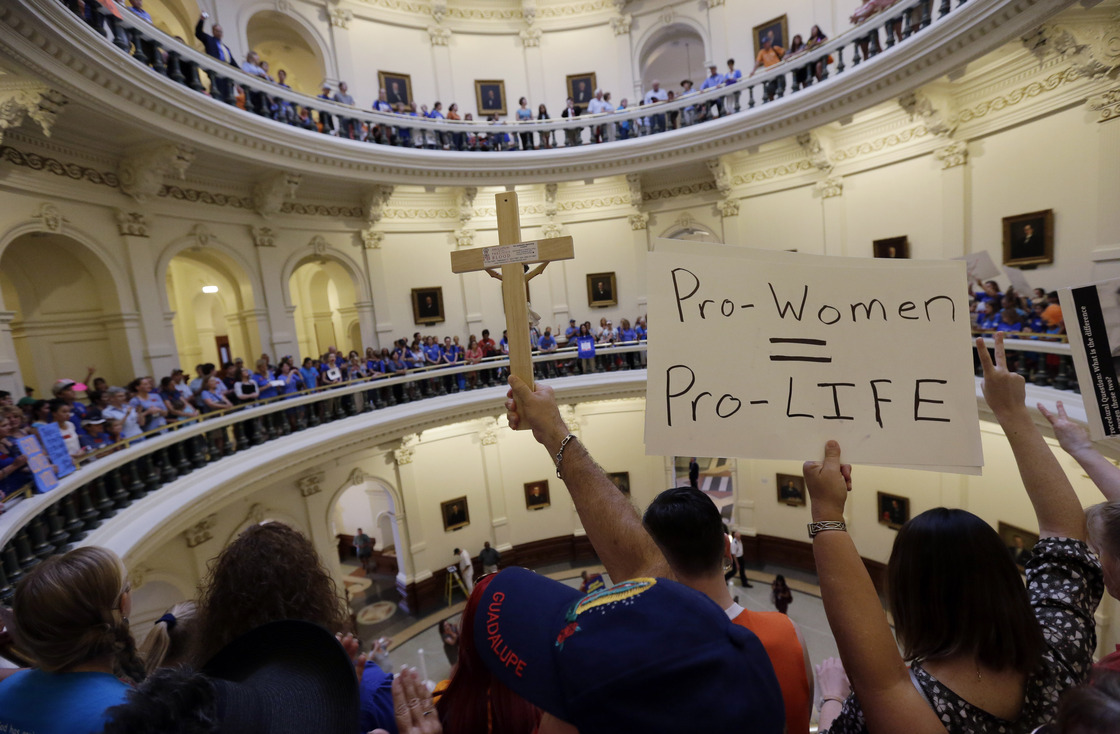
Texas, where abortion-rights battles took place in July at the state capitol, is part of an eight-state region that has gotten more conservative on the issue.
Eric Gay/AP

Texas, where abortion-rights battles took place in July at the state capitol, is part of an eight-state region that has gotten more conservative on the issue.
Eric Gay/AP
Regional disparities over the abortion issue have grown during the past two decades, leading to an ever widening gulf between the nation's most conservative and most liberal regions.
A new Pew Research Center survey reports that an eight-state region — Kentucky, Tennessee, Alabama, Mississippi, Louisiana, Arkansas, Texas and Oklahoma — has grown significantly more conservative when it comes to abortion, with opposition to legal abortion increasing by 12 percentage points since 1995-96. That's the biggest jump of any region in the nation over that period.
The result is a much wider divide between the South Central states and the region at the other end of the spectrum, New England, where support for legal abortion grew by 5 percentage points between 1995-96 and 2012-13.
The two regions are now separated by a 35-percentage-point difference when it comes to views on legal abortion.
Pew found that public opinion on abortion in those eight South Central states has essentially flipped, going from majority support for legal abortion in 1995-96 (52 percent) to just 40 percent today. More than half of adults (52 percent) in the South Central region now say abortion should be illegal in all or most cases.
In most other regions, the numbers have been fairly stable. But there have been a few notable changes. In the Midwest, support for legal abortion declined by 8 percentage points. And in New England, the most liberal region on the issue, support for legal abortion increased from 70 to 75 percent.
I asked Michael Dimock, the Pew center's director and a political scientist, what explains the more conservative tilt of the South Central states. For now, he had more questions than answers.
"There are interesting questions it raises about the composition of those states and whether this fits into broader thinking about whether people in this country are sorting themselves out more and more in terms of where they live and whether we are becoming more separated into our enclaves of similar-minded people."
It's possible, he said, that the shift has something to do with a "sorting out" linked to religiosity like evangelical Christianity. He promised to dig further into Pew's religion data to search for possible correlations between abortion, geography and religiosity. I'll update this post when he gets back to me.
Meanwhile, it's worth noting that the region that saw the most dramatic shift in opposition to abortion includes some of the reddest states on the political map. But it doesn't include any of the early presidential primary and caucus states like New Hampshire, South Carolina or Iowa.
So this trend seems unlikely to affect 2016 presidential politics, as none of the South Central states are early primary or general election battleground states.
0 comments:
Post a Comment